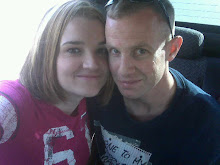It seems like a lot more here lately I am being completely misunderstood in my intentions when I try to talk to someone or hand out what I consider useful advice.
Two years ago, I took the Myers Briggs personality test for a class that I was taking. My personality falls into a category that makes up less then 1% of the WORLD population. So it would go to show that I am misunderstood, because my personality type is so rare. I thought I would post what it says about my personality to give people a little insight into how I REALLY think. I am different, I cannot help that! I am who I am, and I love who I am!!
I pulled this from two different websites. First one HERE.
Second one HERE.
Rational Portrait of the Mastermind (INTJ)
All Rationals are good at planning operations, but Masterminds are head and shoulders above all the rest in contingency planning. Complex operations involve many steps or stages, one following another in a necessary progression, and Masterminds are naturally able to grasp how each one leads to the next, and to prepare alternatives for difficulties that are likely to arise any step of the way. Trying to anticipate every contingency, Masterminds never set off on their current project without a Plan A firmly in mind, but they are always prepared to switch to Plan B or C or D if need be.
Masterminds are rare, comprising no more than, say, one percent of the population, and they are rarely encountered outside their office, factory, school, or laboratory. Although they are highly capable leaders, Masterminds are not at all eager to take command, preferring to stay in the background until others demonstrate their inability to lead. Once they take charge, however, they are thoroughgoing pragmatists. Masterminds are certain that efficiency is indispensable in a well-run organization, and if they encounter inefficiency-any waste of human and material resources-they are quick to realign operations and reassign personnel. Masterminds do not feel bound by established rules and procedures, and traditional authority does not impress them, nor do slogans or catchwords. Only ideas that make sense to them are adopted; those that don't, aren't, no matter who thought of them. Remember, their aim is always maximum efficiency.
In their careers, Masterminds usually rise to positions of responsibility, for they work long and hard and are dedicated in their pursuit of goals, sparing neither their own time and effort nor that of their colleagues and employees. Problem-solving is highly stimulating to Masterminds, who love responding to tangled systems that require careful sorting out. Ordinarily, they verbalize the positive and avoid comments of a negative nature; they are more interested in moving an organization forward than dwelling on mistakes of the past.
Masterminds tend to be much more definite and self-confident than other Rationals, having usually developed a very strong will. Decisions come easily to them; in fact, they can hardly rest until they have things settled and decided. But before they decide anything, they must do the research. Masterminds are highly theoretical, but they insist on looking at all available data before they embrace an idea, and they are suspicious of any statement that is based on shoddy research, or that is not checked against reality.
Alan Greenspan, Ben Bernanke, Dwight D. Eisenhower, General Ulysses S. Grant, Frideriche Nietsche, Niels Bohr, Peter the Great, Stephen Hawking, John Maynard Keynes, Lise Meitner, Ayn Rand and Sir Isaac Newton are examples of Rational Masterminds.
And this is the second article, each has a little different explaination, but all in all, it describes ME!
Introverted iNtuitive Thinking Judging
To outsiders, INTJs may appear to project an aura of "definiteness", of self-confidence. This self-confidence, sometimes mistaken for simple arrogance by the less decisive, is actually of a very specific rather than a general nature; its source lies in the specialized knowledge systems that most INTJs start building at an early age. When it comes to their own areas of expertise -- and INTJs can have several -- they will be able to tell you almost immediately whether or not they can help you, and if so, how. INTJs know what they know, and perhaps still more importantly, they know what they don't know.
INTJs are perfectionists, with a seemingly endless capacity for improving upon anything that takes their interest. What prevents them from becoming chronically bogged down in this pursuit of perfection is the pragmatism so characteristic of the type: INTJs apply (often ruthlessly) the criterion "Does it work?" to everything from their own research efforts to the prevailing social norms. This in turn produces an unusual independence of mind, freeing the INTJ from the constraints of authority, convention, or sentiment for its own sake.
INTJs are known as the "Systems Builders" of the types, perhaps in part because they possess the unusual trait combination of imagination and reliability. Whatever system an INTJ happens to be working on is for them the equivalent of a moral cause to an INFJ; both perfectionism and disregard for authority may come into play, as INTJs can be unsparing of both themselves and the others on the project. Anyone considered to be "slacking," including superiors, will lose their respect -- and will generally be made aware of this; INTJs have also been known to take it upon themselves to implement critical decisions without consulting their supervisors or co-workers. On the other hand, they do tend to be scrupulous and even-handed about recognizing the individual contributions that have gone into a project, and have a gift for seizing opportunities which others might not even notice.
In the broadest terms, what INTJs "do" tends to be what they "know". Typical INTJ career choices are in the sciences and engineering, but they can be found wherever a combination of intellect and incisiveness are required (e.g., law, some areas of academia). INTJs can rise to management positions when they are willing to invest time in marketing their abilities as well as enhancing them, and (whether for the sake of ambition or the desire for privacy) many also find it useful to learn to simulate some degree of surface conformism in order to mask their inherent unconventionality.
Personal relationships, particularly romantic ones, can be the INTJ's Achilles heel. While they are capable of caring deeply for others (usually a select few), and are willing to spend a great deal of time and effort on a relationship, the knowledge and self-confidence that make them so successful in other areas can suddenly abandon or mislead them in interpersonal situations.
This happens in part because many INTJs do not readily grasp the social rituals; for instance, they tend to have little patience and less understanding of such things as small talk and flirtation (which most types consider half the fun of a relationship). To complicate matters, INTJs are usually extremely private people, and can often be naturally impassive as well, which makes them easy to misread and misunderstand. Perhaps the most fundamental problem, however, is that INTJs really want people to make sense. :-) This sometimes results in a peculiar naivete', paralleling that of many Fs -- only instead of expecting inexhaustible affection and empathy from a romantic relationship, the INTJ will expect inexhaustible reasonability and directness.
Probably the strongest INTJ assets in the interpersonal area are their intuitive abilities and their willingness to "work at" a relationship. Although as Ts they do not always have the kind of natural empathy that many Fs do, the Intuitive function can often act as a good substitute by synthesizing the probable meanings behind such things as tone of voice, turn of phrase, and facial expression. This ability can then be honed and directed by consistent, repeated efforts to understand and support those they care about, and those relationships which ultimately do become established with an INTJ tend to be characterized by their robustness, stability, and good communications.
Functional Analysis
by Joe Butt
Introverted iNtuition
INTJs are idea people. Anything is possible; everything is negotiable. Whatever the outer circumstances, INTJs are ever perceiving inner pattern-forms and using real-world materials to operationalize them. Others may see what is and wonder why; INTJs see what might be and say "Why not?!" Paradoxes, antinomies, and other contradictory phenomena aptly express these intuitors' amusement at those whom they feel may be taking a particular view of reality too seriously. INTJs enjoy developing unique solutions to complex problems.
Extraverted Thinking
Thinking in this auxiliary role is a workhorse. Closure is the payoff for efforts expended. Evaluation begs diagnosis; product drives process. As they come to light, Thinking tends, protects, affirms and directs iNtuition's offspring, fully equipping them for fulfilling and useful lives. A faithful pedagogue, Thinking argues not so much on its own behalf, but in defense of its charges. And through this process these impressionable ideas take on the likeness of their master.
Introverted Feeling
Feeling has a modest inner room, two doors down from the Most Imminent iNtuition. It doesn't get out much, but lends its influence on behalf of causes which are Good and Worthy and Humane. We may catch a glimpse of it in the unspoken attitude of good will, or the gracious smile or nod. Some question the existence of Feeling in this type, yet its unseen balance to Thinking is a cardinal dimension in the full measure of the INTJ's soul.
Extraverted Sensing
Sensing serves with a good will, or not at all. As other inferior functions, it has only a rudimentary awareness of context, amount or degree. Thus INTJs sweat the details or, at times, omit them. "I've made up my mind, don't confuse me with the facts" could well have been said by an INTJ on a mission. Sensing's extraverted attitude is evident in this type's bent to savor sensations rather than to merely categorize them. Indiscretions of indulgence are likely an expression of the unconscious vengeance of the inferior.
Famous INTJs:
Susan B. Anthony
Lance Armstrong
Arthur Ashe, tennis champion
Augustus Caesar (Gaius Julius Caesar Octavianus)
Jane Austen (Pride and Prejudice)
Dan Aykroyd (The Blues Brothers)
William J. Bennett, "drug czar"
William F. Buckley, Jr.
Raymond Burr (Perry Mason, Ironsides)
Chevy Chase (Cornelius Crane) (Fletch)
Katie Couric
Phil Donahue
Michael Dukakis, governor of Mass., 1988 U.S. Dem. pres. candidate
Richard Gere (Pretty Woman)
Rudy Giuliani, former New York City mayor
Greg Gumbel, television sportscaster
Hannibal, Carthaginian military leader
Veronica Hamel (Hill Street Blues)
Angela Lansbury (Murder, She Wrote)
Orel Leonard Hershiser, IV
Peter Jennings
Charles Everett Koop
Ivan Lendl
C. S. Lewis (The Chronicles of Narnia)
Joan Lunden
Edwin Moses, U.S. olympian (hurdles)
Martina Navratilova
Michelle Obama
General Colin Powell, former US Secretary of State
Hillary Clinton, US Secretary of State
Charles Rangel, US Representative, D-N.Y.
Pernell Roberts (Bonanza)
Donald Rumsfeld, former US Secretary of Defense
Hillary Clinton, US Secretary of State
Arnold Schwarzenegger, Governor of California
Josephine Tey (Elizabeth Mackintosh), mystery writer (Brat Farrar)
U.S. Presidents:
Chester A. Arthur
Calvin Coolidge
Thomas Jefferson
John F. Kennedy
James K. Polk
Woodrow Wilson
Passing The Baton
1 year ago







Just tagged you for an award over at my blog!
ReplyDeletehttp://jenniferlynnsmith.blogspot.com/2010/01/interesting-award.html